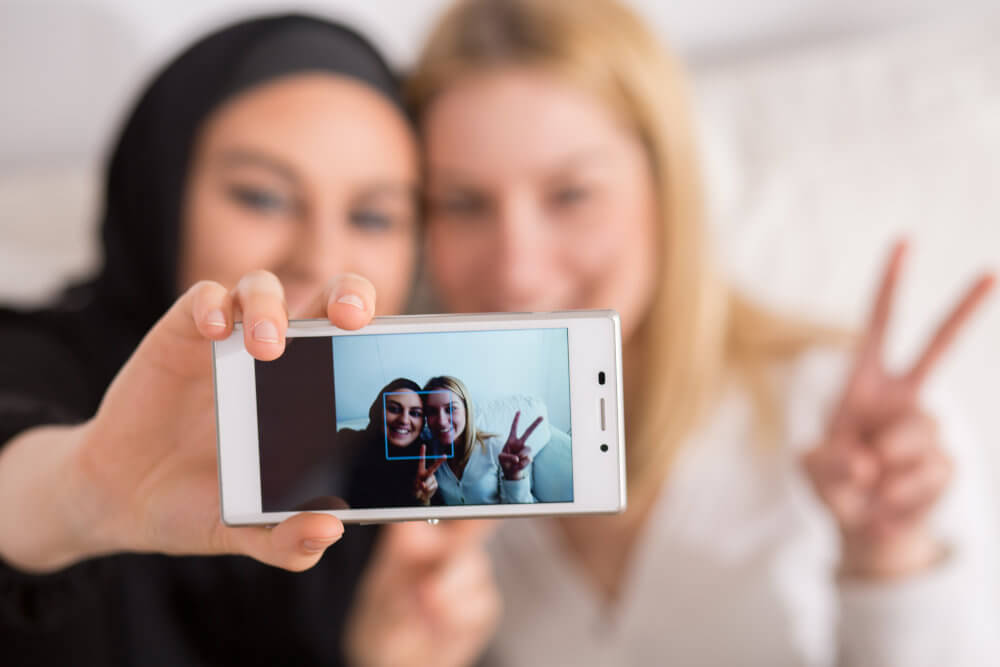Strength in Vulnerability: Overcoming the Cycle of Fear Between Religious Groups

In our troubled and divided society, we should carry a default assumption of the goodness of human beings. Let us not despair of our differences.
I am an American Muslim who has worked to heal religious divides—among religions, within religions, and between religion and non-religion—pretty much my whole life. Even as a child I wondered about the challenges of pluralism and how people with religious differences can respect each other. The course of my life has put me in this space: reading Karen Armstrong’s A History of God before I was even a teenager, participating in a variety of interfaith initiatives, majoring in religious studies in college, studying law and religion in law school, publishing on religious liberty topics, litigating at a non-profit law firm specializing in religious liberty, and researching religious tribalism.
My religion inspires me to do this work in the most direct way possible. The Qur’an says: “O mankind, indeed We have created you from male and female and made you peoples and tribes that you may know one another” (49:13). The verse is literally talking about tribes and—perhaps revolutionarily for our time—telling us that tribal identities are not in and of themselves a bad thing. In fact, they can be the source of tremendous healing.
Social scientists today say the same thing. First, tribes are essential to who we are as humans. So much so that loyalty to our group affects us both psychologically and physically. Rejection, stigma, or social isolation literally trigger a physical assault on our body.[1] Second, scientists say that when we are loyal to our group and receive its affirmation, we feel confident and happy. But tribal membership can also become toxic if our group (the “in-group”) feels threatened by the out-group. Studies show that that leads to hostility, ranging from prejudice to a desire to strip rights from the out-group, and in extreme cases, even violence and genocide.
In American religious tribalism, this dynamic can be seen in a number of places, but one example is between conservative white evangelicals (in-group) and Muslims (out-group). A May 2019 poll by the Institute for Social Policy and Understanding found that, more than any other religious group, white evangelical Americans hold negative attitudes about Muslims. At the same time, we know that white evangelicals are experiencing tremendous anxiety in the face of seismic demographic and cultural changes. Consider three major shifts: First, white preponderance is on the decline. In 1965, white Americans constituted 84 percent of the U.S. population and now Pew says whites will be a minority by 2055. Second, in 1996 white Protestant Christians still made up two-thirds of the population. Today, they don’t even constitute a majority. Third, the demise of white Protestant America has brought with it an end to the cultural and institutional world built primarily by white Protestants.
So, conservative white evangelicals understandably feel a little besieged, and just as studies on intergroup bias predict, that vulnerability is being turned against the out-group. One aspect of this is revealed in surveys comparing perceptions of discrimination against Christians versus Muslims. In 2019, Pew found that Democrats and those who lean Democratic “are more likely than Republicans and Republican leaners to say Muslims face at least some discrimination in the U.S. (92% vs. 69%)… At the same time, Republicans are much more likely than Democrats to say evangelicals face discrimination (70% vs. 32%).”[2] In 2017, the Rasmussen Report[3] and PRRI found very similar discrepancies.[4]
Unfortunately, the hostility goes beyond merely dismissing anti-Muslim discrimination to outright hostility, and even attempts at limiting Muslims’ religious rights. At a time when religious freedom is often utilized to protect Christian interests in the U.S., some Christians use it to also exclude Muslims from the American fabric. I documented this in detail in my 2019 book, When Islam Is Not a Religion: Inside America’s Fight for Religious Freedom. There, I explained how some conservative Christians deny the religious character of Islam in order to strip Muslims of religious freedom—including, for example, the right to build houses of worship, utilize religious arbitration to settle personal disputes, wear religious garb, etc.
But even in the face of such obstacles, I do not—I cannot—despair because I know that tribal divides can be mended. God says it’s possible; indeed, He says mending the divide is the very purpose of our differences. Again: “O mankind, indeed We have created you from male and female and made you peoples and tribes that you may know one another.” I approach my study of tribalism in search of a solution that I know exists.
Studies on intergroup bias show that empathy works really well. The out-group tells the threatened in-group, “tell us what is bothering you.” Even in the face of hostility, a big part of the solution is to be open and honest in listening to others’ sincere concerns; openness reduces the feeling of threat and allows us to have “hard conversations in a soft place.” The effort is both excruciating and rewarding.
Brene Brown says in her book Braving the Wilderness: The Quest for True Belonging and the Courage to Stand Alone that the people who overcome polarization are those who “lean into vulnerability” by staying “zoomed in.”[5] They commit “to assessing their lives and forming their opinions of people based on their actual, in-person experiences.” “Zooming in” means questioning the bleak narratives we hear on the news and from the mouths of politicians. When we see people close-up, it is a lot harder to hate them—a lot harder to recede into our “go-to emotions”: “pain and fear, anger and hate.” We may just see ourselves in their pain.
These are the same principles Islam teaches. A major facet of our intractable divide today is the sense of certainty each side has that it is right and righteous, and the other side is wrong and evil. Religion can help us question this certainty; indeed, believers in a transcendent force necessarily understand the fallibility of human reason. Because of my religious grounding, I understand that final truth is located outside myself and is in a sense unreachable; my job is to cultivate clarity through patience and inquiry. In the work of vulnerability and reconciliation we often only approximate.
But there are other types of certainty that my religion tells me to question. For example, it says I have to challenge the certainty that my opponent is bad or wrong. A common refrain in the Muslim community, first articulated by a classical Islamic scholar, is: “If a friend among your friends errs, make seventy excuses for them. If your hearts are unable to do this, then know that the shortcoming is in your own selves.” The idea is that we should always carry a default assumption about the goodness of humans, and if anything causes us to doubt this goodness, we should be careful to look beyond the surface. In Brown’s words, we should “zoom in” to the real person rather than take what others are saying about him or her. The Qur’an, too, emphasizes this fact-finding when it commands Muslims to “Shun much doubt; for lo! some doubt is sinful.” (49:12).
I employ both of these tactics in my own engagement with conservative white evangelicals. I always approach our conversations with a simple acknowledgement about their inherent complexity. I tell them that I want us to know one another.
Asma T. Uddin is a lawyer and scholar specializing in U.S. and international religious freedom. She also writes and speaks on American Muslims and gender.
This essay is part of a series called “Finding Faith in the Age of Anxiety.” It explores solutions that faith offers in countering the troubles of our time. Perspectives from various religious traditions are represented.
[1] Mason, Lilliana. 2018. Uncivil Agreement: How Politics Became Our Identity. Chicago: University of Chicago Press.
[2] https://www.pewresearch.org/fact-tank/2019/05/17/many-americans-see-religious-discrimination-in-u-s-especially-against-muslims/
[3] https://www.rasmussenreports.com/public_content/politics/general_politics/february_2017/democrats_think_muslims_worse_off_here_than_christians_are_in_muslim_world
[4] https://www.prri.org/research/lgbt-transgender-bathroom-discrimination-religious-liberty/
[5] Brown, Brene. Braving the Wilderness: The Quest for True Belonging and the Courage to Stand Alone (45).



